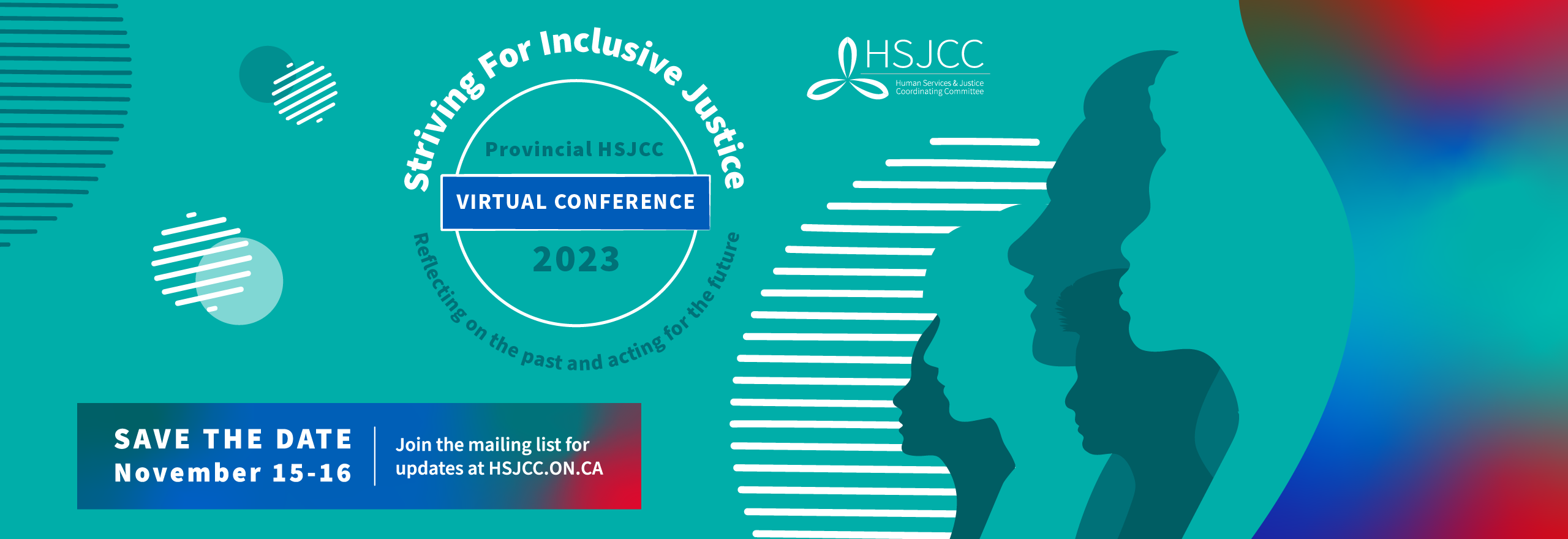COVID-19 Updates for the HSJCC Network
This page was last updated on June 26, 2020. To submit any additional updates or resources, please contact Candace Vena at cvena@ontario.cmha.ca.
The Provincial HSJCC has made multiple submissions to Government outlining the impact of COVID-19 on service delivery across the human services and justice sectors:
Justice System Updates
Ontario Association of Chiefs of Police: Staff are working remotely and sharing information with members online.
Ontario Provincial Police: Access to detachments is limited and screening measures are in place. Please contact your local detachment for more information.
Mobile crisis response teams: Contact your local police service to determine whether the team is operating and/or has modified its hours or service delivery.
Police will now be enforcing new municipal, provincial and federal orders, such as:
- Ontario’s closure of non-essential businesses.
- Federal mandatory 14-day self-isolation for anyone returning to Canada.
- Any municipal orders such as the closure of playground and park amenities in Toronto
Ontario Court of Justice: Trials and Preliminary Hearings in the Ontario Court of Justice will resume on July 6, 2020 in a limited number of courthouses and courtrooms, according to a notice released on June 17. All other proceedings will continue to be conducted remotely. This includes bail proceedings, resolutions involving accused persons who are in and out of custody, remand and case management appearances.
Certain in-person family matters will also resume in a limited number of courthouses. Virtual courts, by teleconference or videoconference, will continue as currently scheduled.
Further notices and updates regarding court proceedings can be found on the Ontario Court of Justice website.
Superior Court of Justice: All regular court operations are suspended until further notice. Courts will continue to hear urgent criminal, family and child protection matters:
- Urgent in-custody judicial pre-trials will be heard remotely.
- Bail, bail review and detention review will be heard remotely with consent from all parties.
- Urgent in custody guilty pleas and sentencing can be arranged remotely.
- Urgent family and child protection matters will be heard (e.g., restraining orders, exclusive possession of the family home, essential medical decisions, wrongful removal or retention of a child, non-depletion orders).
- For up-to-date information on court operations, please visit the Superior Court of Justice website.
Court of Appeal for Ontario: The Court of Appeal suspended all scheduled appeals until April 3, 2020. During this period, urgent appeals will be heard based on either the written materials or remotely. Parties on non-urgent appeals that were scheduled during this time can request that their appeal be heard in writing. For more information, visit their website.
Legal Aid Ontario: All legal aid and provincial offices are closed to the public and all in-person services are on hold. Duty counsel are not appearing in court but are representing clients remotely.
- LAO’s toll-free phone service is available Monday to Friday, 8am – 5pm EST: 1-800-668-8258.
- LAO’s toll-free phone number for those in custody is 1-800-668-8258.
- For up-to-date information regarding Legal Aid Ontario services, please visit their website.
Ontario Review Board: All hearings up to April 3, 2020 have been postponed until after June 1, 2020. For more information, please visit their website.
Consent and Capacity Board: Hearings are being conducted remotely. For more information please visit their website.
- Legal Aid Ontario continues to provide representation at CCB hearings. LAO’s toll-free phone number is: 1-800-668-8258.
- The Psychiatric Patient Advocacy Office continues to provide rights advice over the phone. Call their office toll-free at 1-800-578-2343.
Immigration and Refugee Board: All in-person hearings and mediations have been suspended until May 4, 2020. Detention reviews will continue by incorporating remote participation.
- LAO continues to provide representation in IRB matters. Call toll-free Monday to Friday 8:30 am to 4:30 pm EST: 1-855-854-8111.
- For up-to-date information regarding the IRB, please visit their website.
Ministry of the Solicitor General: On May 14, 2020 the Ministry shared the following memo: Information Share: Release from Correctional Institutions.
Correctional Service Canada: All visits from the public and volunteers are suspended. Temporary absences from institutions are suspended, unless medically necessary. Work releases are also suspended.
- Video and telephone visitation options are available.
- Telephone fees are being waived for the next three months.
- For more information, please visit this website.
Parole Board of Canada: All hearings are being conducted remotely via videoconference.
- Participation of victims and observers cannot be facilitated at this time, however, victims may submit written statements or make audio or video recordings.
- For more information, please visit this website.
Ontario Correctional Facilities: All personal visits are temporarily suspended. Professional visits, including legal counsel, will continue with screening for COVID-19 symptoms.
- Temporary absences are being expanded beyond the current 72 hour maximum for inmates considered at low risk to reoffend.
- Intermittent sentences being served on weekends may be allowed longer temporary absences from custody as appropriate.
- Use of telephones and mail will continue.
- For more information, please visit this website.
Ontario Parole Board: Hearings may be conducted by electronic or written means, rather than solely in person. Please visit their website or contact opbregistrar@ontario.ca for more information.
Legal Aid Ontario: LAO’s toll-free phone number for those in custody is 1-800-668-8258.
Ontario Probation and Parole: Alternatives to in-person meetings are allowed. Office operating hours have been adjusted and all clients and visitors will be screened for COVID-19 symptoms and asked about recent travel.
- For more information, please visit this website.
Youth Detention Centres: The following measures have been put into place in provincially operated youth justice centres:
- Suspending all personal visitors and cancelling volunteer activities. Professional visits including legal counsel will continue however, though consideration should be given to alternative options such as the use of teleconferences.
- Approved personal visitors will be able to continue to maintain contact with youth by phone. Enhanced technology, such as video calling, where operationally available and operationally feasible, can be used to allow virtual visits with family.
- All non-essential reintegration leaves will be restricted until further notice. Reintegration leaves help youth in custody to reintegrate back into the community and support their rehabilitation by allowing them to leave a facility for medical, humanitarian/compassionate, employment and/or educational reasons for a specified time while following set terms and conditions, including staff escorts.
COVID-19 Public Resources
- The ministry has provided guidance for screening for COVID-19, which may be helping in understanding how to screen for your various programs, such as housing:
- Guidance for Primary Care Providers in a Community Setting
- Guidance for Acute Care
- Guidance for Home and Community Care Providers
- Guidance for Long-Term Care
- COVID-19 Screening Checklist
- Guidance for Paramedic Services
- Guidance for Independent Health Facilities
- Guidance for Laboratories
- Guidance for Pharmacies
- Guidance for Consumption and Treatment Services (CTS) Sites
- Guidance for Community-Based Mental Health and Addictions Service Providers in Residential Settings
- Guidance for Mental Health and Addictions Service Providers in Community Settings
- On May 19, the Ministry of Health released the memo: Clarification on the Resumption of In-person Service Delivery.
Ministry of Health signage: The following signage for patients and visitors has been created by the Ministry of Health to be used in health care settings:
Patients:
Visitors:
Ontario Extends Emergency Orders to Help Stop the Spread of COVID-19: The government is extending all emergency orders that have been put in place to-date until May 6, 2020. It has also introduced a new measure to allow mental health and addictions agencies to redeploy staff.
Public Health Ontario COVID-19 page: includes latest updates and information from a provincial scope, including the current status in Ontario, information for health care providers, and resources related to guidance and best practices, laboratory testing and research.
Public Health Ontario fact sheet: a helpful fact sheet on how to self-isolate effectively if you exhibit symptoms or believe you are at risk.
LHIN COVID-19 Programmatic Impact SBAR template: A form for organizations to outline to LHIN how COVID-19 will impact programs (situation, background, assessment, recommendation and potential impacts to performance).
Ontario Association for ACT & FACT COVID-19 guidance: Recommends precautions in the delivery of ACT and FACT essential services, with consideration to staffing and scheduling, medication, clozapine bloodwork, food assistance, and self-care assistance for infected individuals.
Information and Privacy Commissioner of Ontario Electronic Communication of Personal Health Information slide deck: Provides details on protecting privacy when communicating electronically, safeguards for communicating personal health information by email, and reducing risk of unauthorized access.
Ontario MD Virtual Care and COVID-19 page: Guidance on virtual care and sharing patient info using technology, with quick tips on screening, care for patients with suspected COVID-19, care for regular patients, as well as videos visit platforms and resources.
Ontario Health – Health System Response Structure: To meet the demands of the current pandemic, Ontario Health is evolving its current regional table format into a Health System Response structure designed to support real-time decision-making and action throughout the health system in response to the pandemic.
College of Registered Psychotherapists of Ontario – latest news: The college is providing regular updates on its website, with current posts on advice for registered psychotherapists, FAQs, implementing electronic practice, health care provider recruitment, and more.
e-Mental Health Services for Children and Youth (via the Ontario Centre of Excellence for Child & Youth Mental Health and Children’s Mental Health Ontario: Information about ongoing work these organizations are leading to support the delivery of high-quality e-mental health services for Ontario’s children and youth, as well as links to practice guidelines, toolkits and other resources published by professional colleges, associations and institutions relevant to the delivery of e-mental health services in Ontario.
Ontario Caregiver Organization’s dedicated COVID-19 webpage: Includes specific caregiver information related to COVID-19, such as mental health tips, support technology, virtual support group, provincial and federal government resources, and more.
Health Care Access Research and Developmental Disabilities COVID-19 Website: A compilation of resources from around the world and information to support people with developmental disabilities and their families during this time.
CLEO updates on the law and legal services: CLEO is working to give practical answers to questions people are asking about the law relating to the COVID-19 situation. They are also sharing updates about changes to government programs and court services.
CAMH TeleMental Health Guidelines for Virtual Clinic Visits: A temporary set of procedural guidelines developed in response to immediate COVID-19 service needs.
EENet COVID-19 Community Service Provider Resources: Guidance documents and tools shared on behalf of the Toronto Region COVID-19 Mental Health and Addictions Working Group.
Provincial HSJCC Submissions to Government on Impact of COVID-19: The Provincial HSJCC has made multiple submissions to Government outlining the impact of COVID-19 on service delivery across the human services and justice sectors:
Health Canada COVID-19 outbreak update: Latest updates, statistics, preparation tips, travel advice, symptoms and treatment information, and more.
Health Canada FAQs: Frequently-asked questions with answers related to COVID-19, including what the virus is, how it spreads, risks, symptoms and treatment, prevention tips, how to handle various travel scenarios, and actions being taken at borders and airports.
Health Canada self-monitoring, self-isolation and isolation infographic: Helps individuals understand the difference between self-monitoring, self-isolation and isolation, and when to do each and the steps to take in each situation.
Mental Health Commission of Canada managing coronavirus anxiety video: Thirty-nine-second clip provides helpful tips to manage anxiety, including staying connected, getting news from reliable sources and showing compassion for others.
Mental Health Commission of Canada Resource Hub: Mental health and wellness during the COVID-19 pandemic: Information and resources about maintaining mental health during this time of crisis, and supporting people managing a mental illness in this context.
Toronto Public Health COVID-19 page: Latest updates and information specific to Toronto, including current status, risk to residents, how to protect yourself, travel advice, diagnosis and testing, statements from Toronto’s medical officer of health, Q&As and more.
Toronto Public Health notice: If you have recently returned from travels outside the country and are feeling well, Toronto Public Health asks that you monitor for any symptoms and refrain from visiting with seniors and people with chronic health conditions for a 14-day period
City of Toronto shelter program resources: The City of Toronto provided the following contents to support their shelter programs:
- Letter to all shelter, respite and drop-in providers
- Infection Prevention and Control Guide for Homelessness Service Settings
- Fact sheet: Interim Guidance for Homelessness Service Settings Providers
- COVID-19 Screening Tool for Homelessness Service Settings
- Referral flow chart: How does the COVID-19 Screening Process Work for Shelters, 24-hour Respites, and 24-hour Drop-in Clients?
- Instructions for Arranging Non-Emergency Transportation for Shelter, 24-hour Respite and 24-hour Drop-in Clients to COVID-19 Assessment Centres
- Poster: Protect Yourself
- Poster: Wash Your Hands
- Poster: Cover Your Cough
- Poster: Self-isolate
- Poster: Social Distancing
- Postcard: How to Protect Yourself
World Health Organization’s coping with stress tip sheet: A document which may be helpful to share with staff and clients, featuring helpful reminders such as talk to family and friends to manage emotions and stress, maintain a healthy lifestyle, abstain from alcohol and drugs as coping mechanisms, seek reliable information and more.
World Health Organization’s mental health considerations during COVID-19 outbreak: Mental health considerations were developed to support mental and psychological well-being for general population, health care workers, health care team leaders, caregivers and people in isolation during COVID-19 outbreak.
Centers for Disease Control and Prevention tips to manage anxiety and stress: Outlines symptoms of stress during an infectious disease outbreak, recommendations for individuals with pre-existing mental health conditions, advice for parents, responders and people released from quarantine, as well as additional resources.
How to Stay Mentally Healthy During the COVID-19 Pandemic | 2020-03-31 |The Brain & Behavior Research Foundation
COVID-19 Response for Unsheltered Homeless People | 2020-04-01 | Canadian Alliance to End Homelessness
Supporting Harm Reduction in COVID-19 Shelter and Self-Isolation | 2020-04-02 | Canadian Alliance to End Homelessness
Short Term Interventions: Transitioning from In-Person to Online Support | 2020-04-08 | SafeGuards Training
Mindfulness and Self-Care for Helping Professionals in Uncertain Times | 2020-04-09 | SafeGuards Training


